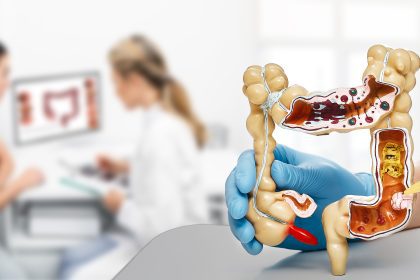The connection between oral sex and cancer has become a topic of growing concern in recent years. This relationship centers on the human papillomavirus (HPV) and its potential links to cancers of the throat and mouth. Understanding these connections can help individuals make informed decisions about their health.
The idea may sound alarming, but understanding the risks, prevention strategies, and science behind it empowers people to take control of their health choices. This growing awareness has led to increased focus on prevention and early detection strategies.
How HPV affects the throat and mouth
HPV is one of the most common sexually transmitted infections, with certain strains known to cause cancer. When transmitted through oral sex, high-risk HPV strains can infect the mucosal surfaces of the mouth and throat. These infections, particularly when persistent, have been linked to oropharyngeal cancers affecting areas such as the base of the tongue, tonsils, and back of the throat.
The virus spreads through intimate skin-to-skin contact, and engaging in unprotected oral sex with an infected partner increases transmission likelihood. While not everyone exposed to HPV develops cancer, those with weakened immune systems, poor oral hygiene, or other risk factors may face higher risks.
Understanding risk factors
Several elements influence potential health outcomes. High-risk HPV strains, particularly HPV-16 and HPV-18, show stronger associations with cancer development. These strains can cause abnormal cell changes that, over time, may progress to malignancy.
Lifestyle choices play a significant role in risk levels. Smoking and heavy alcohol consumption compound the risk by irritating tissues in the mouth and throat, creating an environment conducive to cancer development, especially in individuals already exposed to HPV.
The number of sexual partners also affects risk levels. Studies indicate that HPV-related throat cancer risks increase with a greater number of lifetime oral sex partners, highlighting the importance of protective measures and regular health screenings.
Recognizing warning signs
Early stages of throat and mouth cancer often show no symptoms, making regular health checkups crucial. However, several warning signs warrant attention:
- Persistent sore throat lasting more than two weeks
- Difficulty or pain when swallowing
- Unexplained weight loss that occurs rapidly
- Hoarseness or noticeable changes in voice
- Swollen lymph nodes in the neck area
These symptoms require prompt medical attention, as early detection significantly improves treatment outcomes.
Prevention and protection
The HPV vaccine represents a powerful tool in preventing HPV-related cancers. It proves most effective when administered before exposure to the virus, typically during adolescence, though it can benefit adults up to certain ages as well.
Using protection during oral sex, such as dental dams or condoms, can significantly reduce HPV transmission risk. While these methods aren’t foolproof, they provide important protection against many sexually transmitted infections.
Regular screenings become particularly important for individuals at higher risk, such as smokers or those with multiple sexual partners. These checkups help detect precancerous changes early when intervention proves most effective.
Addressing common myths
Several misconceptions surround this topic. First, oral sex doesn’t always lead to cancer – the vast majority of people who engage in oral sex will not develop throat or mouth cancer. While HPV presents a significant risk factor, other elements such as genetics, lifestyle, and immune health play crucial roles in cancer development.
Another myth suggests only women face risks. In reality, men actually show higher likelihood than women of developing HPV-related throat cancers, possibly due to differences in immune response or exposure rates.
The belief that HPV infections rarely occur also proves false. HPV ranks among the most common sexually transmitted infections, with millions of new cases annually. Most infections prove harmless and resolve independently without causing symptoms.
Taking proactive steps
Maintaining a healthy lifestyle can strengthen your immune system and reduce cancer risks. A diet rich in fruits and vegetables, regular exercise, and avoiding tobacco and excessive alcohol constitute key preventive measures.
Open communication about sexual health with partners and healthcare providers fosters awareness and proactive prevention. Normalizing conversations about HPV, its risks, and available protective measures helps individuals make informed decisions.
Living informed
While the link between oral sex and cancers of the throat and mouth may raise concerns, understanding HPV’s role, recognizing risk factors, and adopting preventive strategies can significantly mitigate these risks. By staying informed and taking proactive steps, individuals can protect themselves and their loved ones from this potential health concern.
Your health remains in your hands, and empowering yourself with knowledge represents the first step toward a safer, healthier future. Regular healthcare consultations and honest discussions about sexual health provide opportunities for personalized guidance and early detection of potential issues.
This story was created using AI technology.














